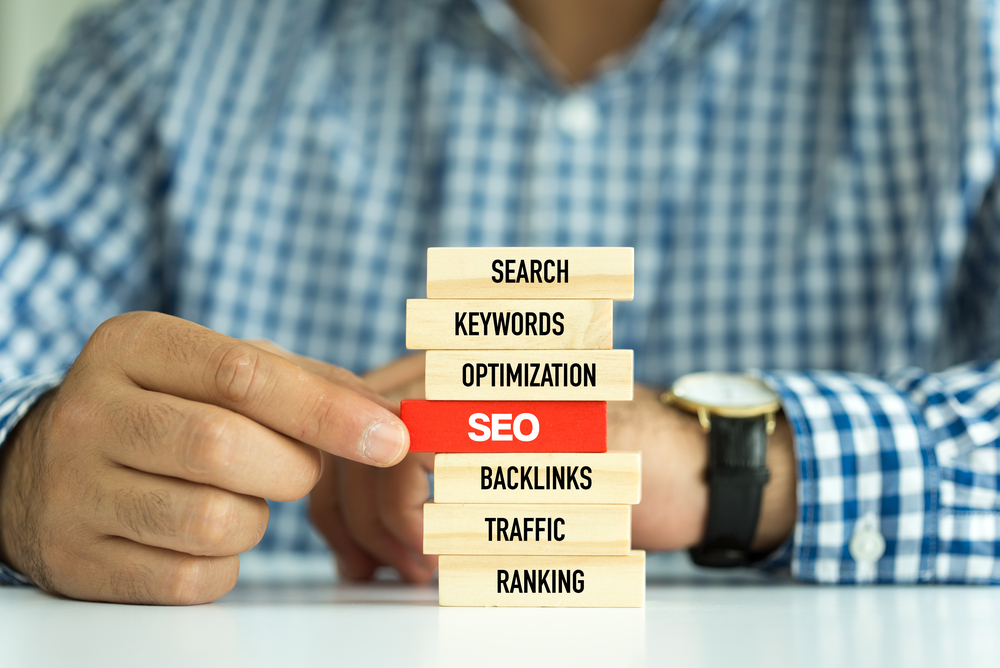
When it comes to building a successful website, search engine optimization (SEO) and link building play a crucial role. By optimizing your website for search engines and establishing relevant links, you can improve your website's visibility, increase organic traffic, and ultimately, drive more conversions. In this article, we will discuss some effective SEO/SEM and link building tips that can help you optimize your website and achieve better search engine rankings.
1. Conduct Keyword Research and Optimization
Keyword research is the foundation of SEO (search engine optimization) . To optimize your website effectively, it's essential to identify the keywords that your target audience is using to search for products or services similar to yours. Once you have a list of relevant keywords, integrate them naturally throughout your website's content, including headings, page titles, meta descriptions, and image alt tags. Remember, avoid keyword stuffing as it can have a negative impact on your rankings.
2. Create High-Quality and Engaging Content
In the world of SEO , content is king. By creating high-quality and engaging content, you not only provide value to your audience but also increase your website's visibility. When writing content for your website, ensure it's relevant, informative, and well-structured. Incorporate your target keywords strategically and aim to answer common questions your audience may have. Additionally, using multimedia elements such as images and videos can enhance the user experience and make your content more shareable.
3. Optimize Page Speed and Mobile Responsiveness
In today's fast-paced digital world, users expect websites to load quickly. A slow website can not only frustrate users but can also negatively impact your search engine rankings. To optimize your website's page speed, minimize HTTP requests, compress images, enable browser caching, and use a content delivery network (CDN). Additionally, with mobile internet usage surpassing desktop, it's crucial to ensure your website is mobile-friendly. Implement responsive design and test your website across different mobile devices to ensure a seamless user experience.
4. Build Quality Backlinks
Backlinks continue to be one of the most important factors in search engine ranking algorithms. Building quality backlinks involves obtaining links from reputable and relevant websites. Start by reaching out to authoritative websites in your industry and pitch them with high-quality guest posts or link collaborations. Additionally, focus on creating shareable content that naturally attracts backlinks. The more quality backlinks you have, the higher your website's authority and visibility in search engine results.
5. Optimize Metadata and URL Structure
Metadata, including title tags and meta descriptions, plays a crucial role in SEO (or SEM) . Ensure that each page of your website has a unique and descriptive title tag that includes your target keywords. Additionally, craft compelling meta descriptions that entice users to click on your website in search engine results. When it comes to URL structure, make sure your URLs are concise, descriptive, and keyword-rich. Avoid using lengthy URLs with unnecessary parameters, as they can confuse search engines and users alike.
FAQs
1. How long does it take to see results from SEO?
SEO is a long-term strategy, and it can take time to see significant results. It usually takes several months for search engines to crawl and index your website's changes and improvements. Additionally, competition and the level of optimization in your industry can affect the time it takes to see results. However, by implementing effective SEM/SEO practices consistently and monitoring your progress, you can start noticing improvements in your website's visibility and organic traffic over time.
2. Is link building still important for SEO?
Yes, link building is still an important aspect of SEO. While search engine algorithms continue to evolve, backlinks remain a key factor in determining a website's authority and relevance. However, it's crucial to focus on quality over quantity. Building high-quality backlinks from authoritative and relevant websites can significantly impact your search engine rankings and drive organic traffic to your website.
3. Should I prioritize mobile optimization over desktop?
With mobile internet usage surpassing desktop, it's important to prioritize mobile optimization. Mobile-friendliness is not only a ranking factor in search engine algorithms but also enhances the user experience. A mobile-friendly website ensures that your content is easily accessible and readable across different mobile devices. By providing a seamless mobile experience, you can engage your audience better and increase the chances of conversions.
4. Can I do SEO on my own, or do I need to hire an agency?
Whether you can handle SEO on your own or need to hire an agency depends on your knowledge, resources, and the complexity of your website. SEO can be a time-consuming and complex process, involving technical aspects, content creation, and link building. If you have the time and expertise to learn and implement SEO best practices, you can optimize your website on your own. However, hiring an SEO agency can provide you with professional expertise, deeper insights, and time-saving benefits.
5. What are some common SEO mistakes to avoid?
Some common SEO mistakes to avoid include keyword stuffing, using duplicate content, neglecting metadata optimization, and ignoring user experience. Keyword stuffing is when you excessively use keywords in your content, which can lead to penalties from search engines. Duplicate content, whether intentional or unintentional, can confuse search engines and negatively impact your rankings. Neglecting metadata optimization, including title tags and meta descriptions, can result in missed opportunities to attract users. Lastly, ignoring user experience, such as slow loading times or poor mobile optimization, can lead to high bounce rates and lower search engine rankings.
By implementing effective SEO and link building strategies, you can optimize your website and improve its visibility in search engine results. Remember, SEO is an ongoing process, and it's crucial to stay updated with search engine algorithm changes and new industry trends. Continuously monitor your website's performance, make data-driven adjustments, and provide valuable content to your audience to drive long-term success.
Other useful resources
- https://en.wikipedia.org/wiki/Search_engine_optimization
- https://simple.wikipedia.org/wiki/Search_engine_optimization
- https://www.seoguru24.com/services/seo/
- https://www.seoguru24.com/services/link-building/